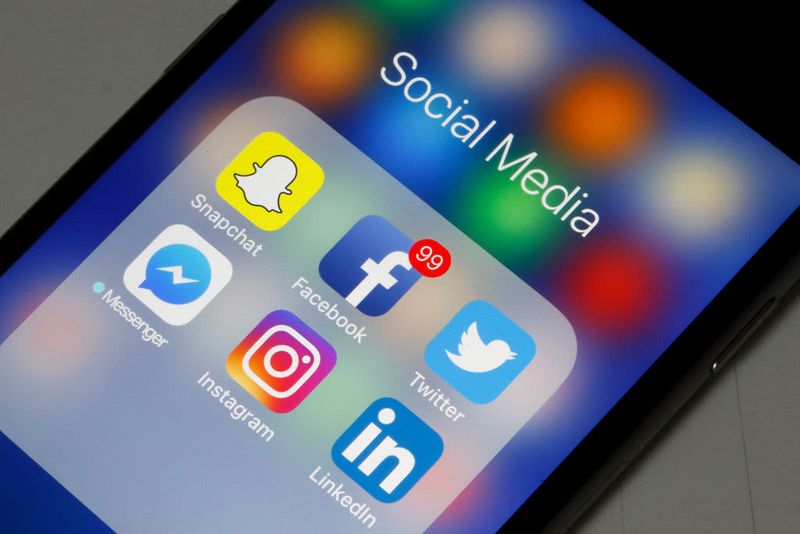1. Introduction

Every generation faces its share of unfair labels, but Generation Z (born between 1997-2012) seems particularly misunderstood. As these young adults enter the workforce and reshape society, they continue to battle persistent misconceptions about their character, habits, and values. While some stereotypes contain small kernels of truth, most paint an incomplete or distorted picture of this diverse generation. Let’s examine the most stubborn Gen Z stereotypes that refuse to fade away.
2. Addicted to Their Phones

Digital natives from birth, Gen Z often gets portrayed as permanently attached to their smartphones. Reality paints a more nuanced picture. While this generation certainly uses technology extensively, many are actually quite mindful about screen time and digital wellness.
Studies show Gen Z increasingly embraces digital detoxes and offline experiences as counterbalance. Their phone use often serves purposeful connection rather than mindless scrolling.
Many Gen Zers actively create boundaries around technology use, recognizing its potential negative impacts better than older generations who adopted smartphones later in life.
3. Lacking Attention Span

Critics frequently claim Gen Z can’t focus beyond an 8-second TikTok video. This oversimplification ignores their sophisticated information filtering abilities developed in response to growing up in an unprecedented data-rich environment.
Gen Z doesn’t lack focus—they’ve developed different processing strategies. When content genuinely interests them, many display remarkable concentration and depth of engagement.
Consider the popularity of complex video games, lengthy YouTube explainers, and multi-season streaming binges among this generation. Their attention isn’t shorter—it’s more selective about where and how it’s directed.
4. Overly Sensitive Snowflakes

Labeled as easily offended “snowflakes,” Gen Z actually demonstrates heightened awareness of social justice and inclusivity. Their sensitivity reflects evolving societal standards rather than personal weakness.
Growing up during rapid social change has equipped them with vocabulary to address issues previous generations often ignored. What critics call “sensitivity” is frequently just a commitment to creating more respectful environments.
Research suggests Gen Z’s mental health focus stems partly from witnessing how silence damaged earlier generations. Their openness about feelings represents strength, not fragility—a willingness to address problems directly rather than suppress them.
5. Financially Irresponsible

Avocado toast and expensive coffee supposedly explain why Gen Z can’t build wealth. Financial data tells a different story. Many in this generation exhibit remarkable financial literacy, having witnessed the 2008 recession’s impact on their families during formative years.
Surveys reveal Gen Z starts saving earlier than previous generations. They’re more likely to research investments, track expenses via apps, and avoid credit card debt.
Economic realities—not spending habits—present their biggest challenges. Rising education costs, stagnant wages, and housing inflation create systemic barriers that even the most frugal Gen Zer struggles to overcome through individual choices alone.
6. Entitled and Lazy Workers

Workplace flexibility requests often get misinterpreted as entitlement when Gen Z questions traditional work structures. Their approach actually reflects efficiency—prioritizing productivity over arbitrary schedules or locations.
Far from lazy, many juggle multiple income streams through side hustles while seeking meaning in their work. Their entrepreneurial spirit drives innovation rather than avoidance of responsibility.
What older generations might view as entitlement often represents legitimate questioning of outdated practices. Gen Z simply recognizes that technology enables better work-life integration than was previously possible, and they’re not afraid to advocate for arrangements that benefit both employees and employers.
7. Incapable of Face-to-Face Communication

Supposedly unable to maintain eye contact or hold conversations without texting, Gen Z gets unfairly characterized as socially awkward. Evidence suggests they simply communicate differently, not worse.
Digital communication has given many in this generation tools to express themselves thoughtfully. For many, texting serves as practice ground before in-person interactions, not a replacement.
Observers often miss how Gen Z seamlessly blends online and offline communication. Their social skills aren’t deteriorating—they’re evolving to navigate both physical and digital spaces simultaneously, a capability that will likely prove increasingly valuable in tomorrow’s world.
8. Obsessed with Social Media Validation

Hunting for likes and followers supposedly consumes Gen Z’s existence. Behind this stereotype lies a more complex relationship with social platforms. Many use social media strategically rather than desperately.
Younger users increasingly prefer private messaging and close-friend features over public posting. Platforms like BeReal and private Discord servers reflect their desire for authentic connection over performance.
As the first generation to grow up fully documented online, many Gen Zers actually demonstrate sophisticated understanding of digital footprints. They often manage multiple accounts with different privacy levels—showing greater awareness of audience and context than their supposedly less-addicted elders.
9. Unable to Handle Criticism

Supposedly requiring constant praise and participation trophies, Gen Z gets characterized as criticism-averse. Workplace research contradicts this notion, showing they actually seek more feedback than previous generations—not less.
Preference for constructive feedback over harsh criticism reflects emotional intelligence, not weakness. Many simply expect communication that addresses both strengths and growth areas rather than purely negative assessments.
Educational environments emphasizing collaborative learning have prepared them for peer review and iterative improvement. Their comfort with feedback loops makes many Gen Zers particularly adaptable in fast-changing environments where continuous improvement matters more than ego protection.
10. Politically Radical

Media portrayals often paint Gen Z as uniformly progressive activists. Polling data reveals much greater political diversity within this generation than stereotypes suggest.
While Gen Z leans progressive on social issues like climate change and LGBTQ+ rights, many hold complex views that don’t fit neatly into partisan boxes. Economic perspectives especially vary widely based on background and experience.
Civic engagement takes many forms beyond protests that grab headlines. Quieter involvement through community service, issue-based advocacy, and local politics characterizes many Gen Zers’ approach to creating change, regardless of where they fall on the political spectrum.
11. Lacking Real-World Skills

Supposedly helpless without YouTube tutorials, Gen Z gets mocked for lacking practical abilities. This overlooks how they’ve adapted learning to modern resources rather than relying solely on traditional instruction.
Self-directed learning through online resources demonstrates resourcefulness, not deficiency. Many develop impressive DIY skills precisely because they leverage digital tools to acquire knowledge.
Schools’ decreased emphasis on home economics and shop classes left gaps that Gen Z fills through alternative learning paths. Their ability to quickly locate and apply information represents a meta-skill increasingly valuable in rapidly changing environments where specific knowledge quickly becomes outdated.
12. Disrespectful Toward Authority

Challenging traditional hierarchies gets misinterpreted as disrespect when Gen Z questions “because I said so” leadership. Their approach actually reflects desire for understanding rather than rebellion for its own sake.
Growing up with unprecedented information access has created expectations for transparency and explanation. Many simply want context before compliance—a reasonable request in complex times.
Respect looks different to this generation. They value earned authority based on expertise and fairness over positional power alone. Leaders who explain rationales and demonstrate ethical consistency typically find Gen Z remarkably responsive and committed once trust is established.
13. Unwilling to Pay Dues

Accused of wanting corner offices without climbing career ladders, Gen Z supposedly lacks patience for professional development. Workplace research reveals they simply recognize outdated practices that waste time without building skills.
Traditional “paying dues” often involved menial tasks unrelated to career advancement. Gen Z legitimately questions whether coffee-fetching and photocopying develop meaningful capabilities in digital workplaces.
Most seek accelerated growth through relevant challenges rather than shortcuts around necessary experience. Their desire for meaningful work reflects healthy ambition, not entitlement—especially considering they’ll likely work longer careers across more roles than any previous generation.

Comments
Loading…